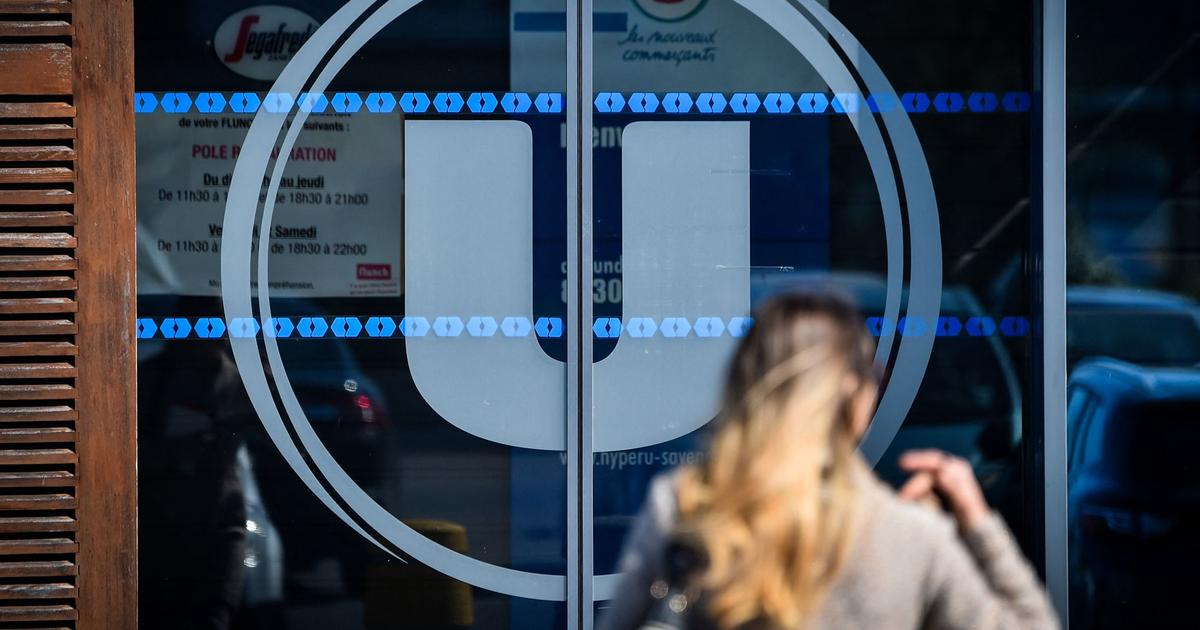The golden mile of supermarkets. This is what Augusto Lobo, director of the commercial area of the JLL real estate consultancy, calls the space in Madrid's Calle de Fuencarral, which is now dominated by food chains, which since the pandemic broke out have been the most active players in contracting commercial premises. . In fact, at the end of 2020 they were the only ones interested in renting these properties, which remained dormant as a result of the closures due to covid. The former Roxy A and Roxy B cinemas have been accommodated by Aldi and last month by regional supermarket BM. Door to door they fight to get customers from Carrefour, which dominates the scene with a cluster of supermarkets a few meters away; Lidl,which has been released at number 101 of the street in the premises that once housed Vips and before Mercadona arrives at number 77 (although it has another establishment nearby).
All the distribution companies are looking for real estate in the center of the main cities, says Lobo, each one to adapt them to their different supermarket formats, in general from 1,000 to 3,500 square meters of surface. From the large Mercadona, Carrefour, Lidl, Dia and Aldi, to regional chains such as Froiz, Gadis and BM, to name a few. “With their openings, these last ones try to become chains of national penetration”, says the director of Retail of JLL, who considers that they are the brands that are demanding the most space, especially in Madrid, Barcelona and the three Basque capitals.
Supermarkets are changing the appearance of the main commercial hubs of Spanish cities, which before the pandemic used to display more glamorous signs.
The closures caused by the covid crisis have made many merchants disappear and have left some properties empty that these chains are now taking advantage of.
And they pay very different prices to their previous tenants.
Another effect of the pandemic and also of their bargaining power.
Within Madrid, rents range between 15 and 20 euros per square meter, although on Calle de Fuencarral they can exceed these amounts.
These companies not only demand sales rooms, but premises to turn them into delivery points for internet orders that they complement with convenience stores, as is the case of Alcampo, or the so-called
dark stores
, black stores where they store and prepare baskets of digital shopping, as does Dia.
However, the large distribution chains are not the only ones fighting for available commercial spaces, according to Lobo.
Pure digital operators, who send orders in the blink of an eye, are also making a strong appearance.
You teach as Gorilla, Dija or Getir.
As they seek to continue opening stores at a frantic pace, supermarkets are also shedding stores that don't fit their format.
In fact, according to Paul Santos, director of retail
investments at
the CBRE consultancy, "the net of 2021, between openings and closings, may not even be positive."
Santos points out that the interest of investment funds for the purchase of food stores has skyrocketed.
In 2020, operations on this type of business reached 600 million euros and in 2021 they have been close to 500 million, "when in a normal year they move between 200 and 300 million euros," he maintains.
Supermarkets, he points out, have represented 70% of all the investment in commercial surfaces made last year, when traditionally it does not reach 20%.
"Since the pandemic, what keeps us busiest is food," he says. Because investors want to have guaranteed income from essential sectors for the economy to avoid the commercial lockdowns of the hardest year of the pandemic. "There is high pressure to invest, with such low rates and great liquidity," explains Santos. The investment funds seek for the distribution chain to ensure the payment of rents and address the necessary reforms in the establishments and thus defend themselves against inflation with a sector in which sales are growing and there is a rise in rental prices, which are increased according to the CPI. They want solvent companies and between a 4% and 6% return on invested capital, details the CBRE manager.
In his opinion, food concentrates the interest of investors, who do not dare with "healthy" shopping centers because there is a lot of uncertainty.
Prices have gone up quite a bit, says Santos;
If before the covid the returns of supermarkets were around 6%, now they have dropped to 5%, "they have been compressed between 100 and 120 points".
Realty Income Corporation has been the most active investor, with two operations closed in 2021: the purchase of 30 Caprabo supermarkets from Merlin for more than 100 million euros and another 7 from Carrefour for 93 million.
But there are other American, German, British or Portuguese investment funds analyzing these asset packages.
On the other hand, Spanish socimis, such as Lar or Merlin, are taking advantage of the moment to get rid of commercial premises rented from supermarkets, "although there are not many left to sell," says Santos. Also the distributors themselves. Mercadona got rid of 27 supermarkets in July that the Israeli investment fund MDSR Investments bought for more than 100 million; Eroski divested 22 stores, acquired by the British fund Blackbrook for 59 million, and Carrefour and Cash Lepe sold 10 stores to the Portuguese fund Square in their first operation in Spain. Many other regional chains are also divesting. “The store portfolio may not be as strategic for operators in the midst of digital change. Immersed in a digitization process that requires investment, the operations of
sale & lease back
are a good way to obtain liquidity”, concludes Santos.

/cloudfront-eu-central-1.images.arcpublishing.com/prisa/S5YMOC5CUZBJLE5NJPOV45OCKM.JPG)

/cloudfront-eu-central-1.images.arcpublishing.com/prisa/C34XDKYTQNEWXN2YWLPBQBPCYI.jpg)





